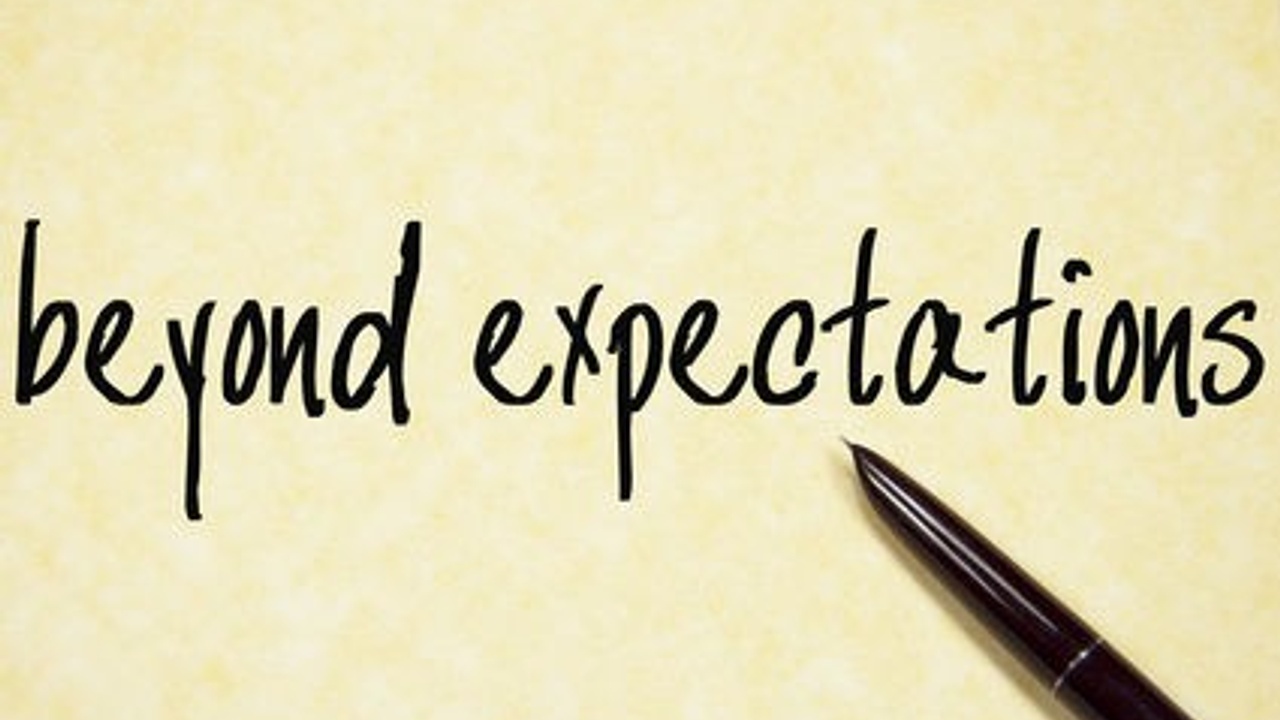Great Executives Know the Difference Between Goals and Expectations

Corporations calculate success by metrics – return on investment, productivity, key performance indicators, cost savings, balance sheet, cash flow, retention, number of goods sold, quality metrics, speed to market, profit margin. Goals are created in the aggregate of these measurements. Performance at work is tied to goals. Goals are always measurable. If it isn’t measurable, it is only a notion, not a goal.
When a corporation doesn’t place the same value on its people as it does on its metrics often employees get sucked into believing that their personal worth is tied to the goal. And if they fail to meet the goal, they are a personal failure. There could be many circumstances that affect the realization of goals – resources, team culture, time, talent, a crisis, market share, competition. Yet individuals often lay expectations on top of goals, leading to despair. I am expected to hit the goal, or I won’t fit in here. If I don’t meet the goal I won’t advance. I might get terminated if I don’t get it done. I’m either good or bad.
Unfortunately, we live in a performance culture in and out of work. Social media constantly reminds us of the perfect life. We repeatedly compare our lives to what the culture shows us is ‘normal’ and ask ourselves, “What have I accomplished, who am I with, what do I have and how can I get more?” Our culture grooms us to purchase based on the sense of urgency to get more – more thin, more money, more pretty, more young, more house, more friends, etc. Except MORE is a concept that has no endgame. You can never feel fulfilled if there is always more to get. This is why we have more depression today than ever before. We are constantly reminded that the expectation of more is linked to happiness. When do we finally get enough? We don’t. It’s impossible.
Know the difference between goals and expectations so you can embrace the goals and release the expectations. Goals are assigned metrics that are essential for success in business and many aspects of life. Expectations are the binary assumptions we attach to goals that tie our personal worth to outcomes. We will meet budget is a goal. If we don’t meet budget, I am a loser and if we do, I will advance are expectations. You expect to feel personal worth or get something based on a goal outcome that is often out of your control. When the expectation is not met, you personalize it as rejection. And although on the surface you are angry or sad, deep down you wonder if there is something wrong with you – that you don’t deserve fulfillment. You either belong or not based on an outcome. This assumption is flawed and kills fulfillment, careers, happiness and the vulnerability necessary for personal development.
I never dreamed of being a CEO. My life goals were to be a mom and have a loving family. Then my marriage fell apart. Everything I ever wanted blew up in my face. I knew how to set goals and achieve them. I’m good at that. That’s how I made my way to the C-suite. What I had to learn was how to set aside the expectations. As I look back on it now, I realize I had tied my value to the outcome of a loving family and assumed there was only one way that worked – Mom, Dad and children. If I didn’t have that I couldn’t be happy. I assumed that if I was dedicated to my family that my husband would be too. And since none of this was working, there must be something wrong with me. I didn’t deserve happiness.
You can’t be your best if you doubt your value. You can’t be humanly honest with yourself about what you are experiencing when you are afraid of feeling inadequate. You can’t build your self-awareness which is essential for executive presence and sound leadership when it turns into self-judgment. You can’t manage your emotions in a pressured moment when you are focused on armoring up against fear. Growth happens when we need not be perfect and can observe the situation from a third-party perspective without any judgment of self or others.
Set goals. Dedicate yourself to achieve them. And have no expectations.
If you want more executive presence tips here’s a link to my FREE report: 31 Success Practices for Leaders in the High Stakes Corporate World
Your coach,
Mary Lee Gannon, ACC, CAE
P.S. Feel free to forward this link to someone who could benefit from it. We are all walking down the same road in life looking for a hand to hold. Sometimes we must be the hand that reaches out.
Mary Lee Gannon, ACC, CAE is an executive coach and 19-year corporate CEO who helps leaders have more effective careers, happier lives and better relationships. Request a free consultation call.
Stay connected with news and updates!
Join our mailing list to receive the latest news and updates from our team.
Don't worry, your information will not be shared.
